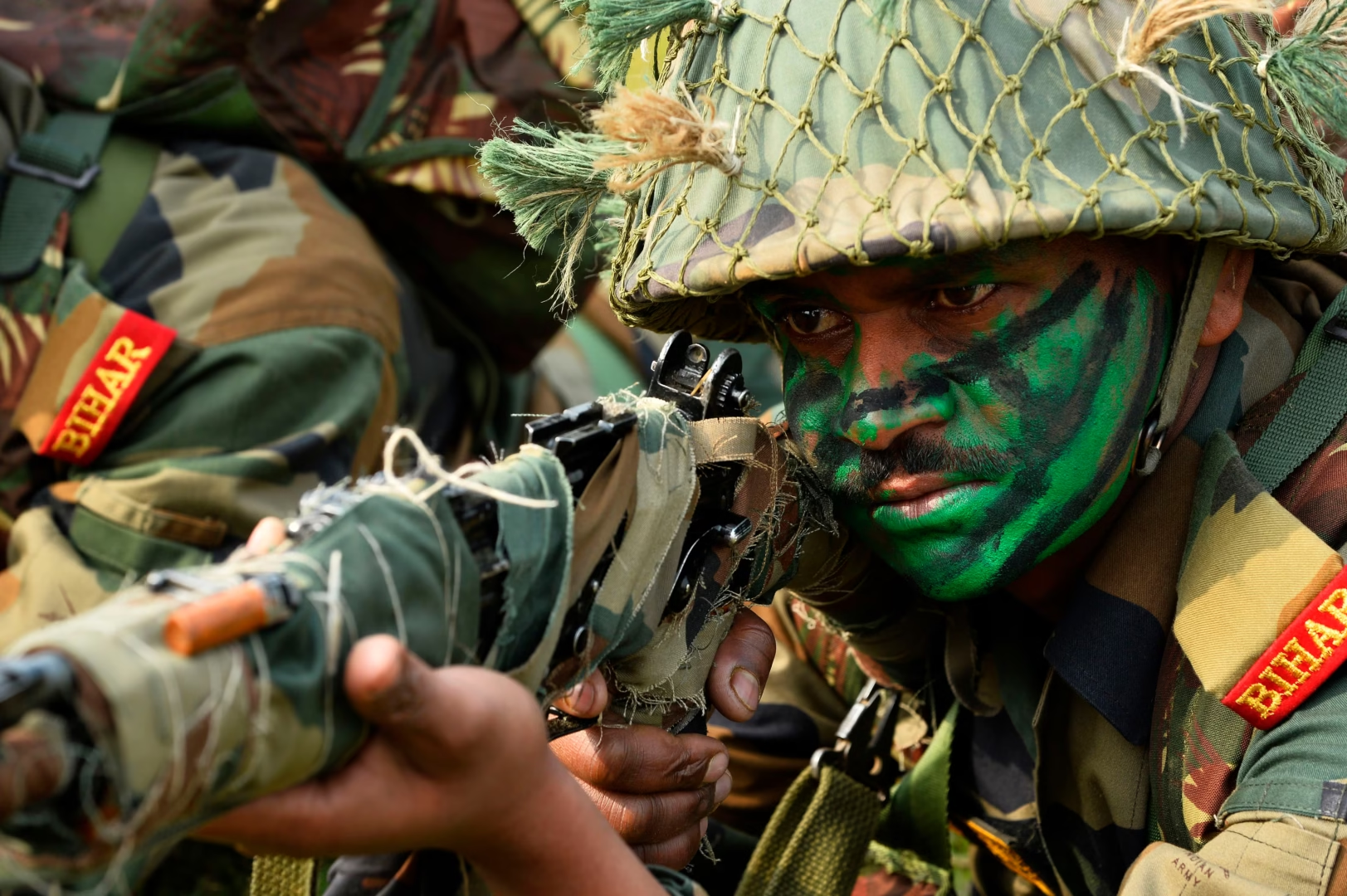NEW DELHI, INDIA — Hours after a ceasefire agreement between India and Pakistan was announced by US President Donald Trump, India accused Pakistan on Saturday of violating the fragile truce and stated it was retaliating.
Trump had earlier indicated that the nuclear-armed neighbors had stepped back from the risk of full-scale conflict.
Indian foreign secretary Vikram Misri alleged “repeated violations” by Pakistan, asserting that India’s “armed forces are giving an adequate and appropriate response to these violations.” Pakistan offered no immediate comment on these claims.
Earlier, AFP journalists in Srinagar, in Indian-administered Kashmir, reported hearing a series of loud explosions. Simultaneously, a senior official in Pakistani-run Kashmir informed Vivid Voice News that “intermittent exchange of fire is ongoing” across the Line of Control (LoC), the de facto border in the disputed region. Further details were not immediately available, and independent verification of the claims remained challenging.
These allegations surfaced after both Pakistan and India had agreed to a “full and immediate ceasefire” following days of intense exchanges involving jet fighters, missiles, drones, and artillery, which resulted in at least 60 fatalities and the displacement of thousands of civilians along their shared border and within divided Kashmir.
The ceasefire announcement had been unexpectedly made by President Trump, who posted, “After a long night of talks mediated by the United States, I am pleased to announce that India and Pakistan have agreed to a FULL AND IMMEDIATE CEASEFIRE. Congratulations to both Countries on using Common Sense and Great Intelligence.”
Prior to the reported violations, Misri had stated that both sides would “stop all firing and military action on land, air and sea” effective from 5:00 pm (1130 GMT).
In a statement on X, Pakistan Prime Minister Shehbaz Sharif conveyed his country’s “appreciation” for the US intervention, writing, “Pakistan believes this marks a new beginning in the resolution of issues that have plagued the region and prevented its journey toward peace, prosperity and stability.”
The recent escalation in conflict was triggered by an attack last month in Indian-administered Kashmir that resulted in the deaths of 26 tourists, predominantly Hindu men. Delhi attributed this attack to Islamabad.
India accused Lashkar-e-Taiba, a UN-designated terrorist organization based in Pakistan, of carrying out the attack. However, Islamabad has denied any involvement and called for an independent investigation.
Militant activity in Kashmir has reportedly increased since 2019, when the Hindu nationalist government of Indian Prime Minister Narendra Modi revoked the region’s limited autonomy and brought the state under direct rule from New Delhi.
The two nations have engaged in several wars over Kashmir, a territory claimed in its entirety by both but administered in separate portions since their independence from British rule in 1947.
Before the claims of renewed clashes, Bilal Shabbir, an IT consultant in Muzaffarabad, in Pakistan-administered Kashmir, commented, “The ceasefire is a positive step. In war, it’s not just soldiers who die, it’s mostly civilians — and in this case, it would have been the people of Kashmir.”
In Srinagar, resident Sukesh Khajuria expressed a more cautious sentiment: “The ceasefire is welcome, but it’s difficult to trust Pakistan. We have to be vigilant.”
The conflict has imposed a significant economic burden on both sides. Pakistani military sources claimed their forces had downed at least 77 Israeli-made high-tech drones, with debris reportedly seen by AFP reporters. Indian officials stated they had destroyed hundreds of Pakistani drones, many of Turkish origin.
Also Read: Drone warfare escalates India-Pakistan tensions: A new era of shadow conflict emerges
Pakistan also claimed to have shot down five Indian warplanes, including three French Rafale fighter jets, although New Delhi has not confirmed any losses. Independent verification of claims from either side has been challenging.
US Secretary of State Marco Rubio indicated that the ceasefire followed engagement with senior officials from both countries by himself and Vice President JD Vance. He also stated on X that they had agreed to “start talks on a broad set of issues at a neutral site.”
News of the ceasefire was met with widespread international relief, following increasing calls for de-escalation. China, bordering both India and Pakistan, stated its willingness to “continue playing a constructive role” and expressed concern over any escalation, according to Xinhua news agency.
Chinese Foreign Minister Wang Yi reportedly spoke with officials from both countries.
Britain, the former colonial power in the Indian subcontinent, and UN chief Antonio Guterres also welcomed the truce. Iranian foreign ministry spokesman Esmaeil Baqaei urged both nations “to use this opportunity to ensure a reduction in tensions and lasting peace in the region.”

